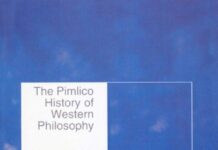
Ebook Info
- Published: 2003
- Number of pages: 439 pages
- Format: PDF
- File Size: 2.25 MB
- Authors: Richard H. Popkin
Description
This is a thoroughly revised and expanded edition of Richard Popkin’s classic The History of Scepticism, first published in 1960, revised in 1979, and since translated into numerous foreign languages.This authoritative work of historical scholarship has been revised throughout, including new material on: the introduction of ancient skepticism into Renaissance Europe; the role of Savonarola and his disciples in bringing Sextus Empiricus to the attention of European thinkers; and new material on Henry More, Blaise Pascal, Thomas Hobbes, Baruch Spinoza, Nicolas Malebranche, G.W. Leibniz, Simon Foucher and Pierre-Daniel Huet, and Pierre Bayle. The bibliography has also been updated.
User’s Reviews
Reviews from Amazon users which were colected at the time this book was published on the website:
⭐Richard Popkin’s book is obviously the definitive word on the subject in the English language. It is massively researched and well written. For me, it provides a gold mine of information in trying to trace the beginning of the enlightenment, which led to the french revolution, and has undermined Western culture ever since.However, I am concerned about Popkin’s bias, which he freely admits to in the Introduction, on page xxiii. He says: “Like the sceptics who will considered here, i believe that doubts can be cast on any such dogmatic claims and that such claims ultimately rest on some element of faith rather than evidence.” This, too, is a dogmatic statement; therefore, doubt can be cast on it, and it ultimately rests on an act of faith.Popkin goes on: “My sympathies are on the side of the sceptics i have been studying.” Professor Popkin is to be congratulated for his candor, but these “sympathies” color the whole book, whether consciously or subconsciously.
⭐A terrific book. As a retired lawyer, I realized that I knew almost nothing about the history of French literature. So I took courses in French and began reading the major works of French literature ca. AD 1000. I am now in the 16th century, and after slogging through Jean Calvin I reached the wonderful Montaigne. But next is Descartes, and I had no idea whether there was a connection between Montaigne’s mild skepticism and Descartes’ “cogito ergo sum.” So before I began Descartes, I read Popkin’s book.This book answered all of my questions about Descartes, and also told me so much about Hobbes, Locke, Spinoza, Hume and Leibniz that I wish I had known 50 years ago. So many doctrines and texts now make much more sense for me. I saw this book cited in a number of footnotes in books and articles about Montaigne, and I am very glad that I read it.
⭐This brilliant work transformed my understanding of the development of modern philosophy. The “Cartesian Revolution” and Kant’s “Copernican Revolution” are overblown: Descartes and Kant had enormously important predecessors who had already articulated some of their most famous arguments. Popkin also shows persuasively that the threat of (Pyrrhonian) skepticism was utterly formative for modern philosophy. I’ll never again look at Descartes, Kant, or 20th-century “postmodernists” in the same way.
⭐Very scholarly and erudite The scholarship strikes me as high, but for one seeking an introduction or overview, this is probably the wrong book. It is definitely not “Skepticism 101.”
⭐Truly informative! Popkins in depth and well documented presentation of the history, sources, and unexpected development of the topic was the ideal format for me.
⭐The final edition of Popkin’s landmark study of the impact of Pyrrhonian skepticism in early modern Europe. For a summary of the first edition, see my prior review of The History of Scepticism from Erasmus to Descartes. This considerably expanded edition differs from prior editions in 1 minor and 1 major way. The minor change is clarifying the details of the rediscovery of Pyrrhonian skepticism in Renaissance Italy. The major change is a significant extension of the text. The original edition ended with a chapter on the reception of Descartes’ efforts to meet the challenges of skepticism via his reconstruction of epistemology. This final edition takes the story through to the end of the 17th century. As in the original edition, Popkin describes and analyzes the thought of a number of major and some relatively minor figures.Following discussion of the controversies surrounding Descartes’ system, Popkin has some interesting chapters on non-epistemic forms of skepticism. This include an interesting analysis of Hobbes and a revealing chapter on biblical criticism. Popkin makes the point that Hobbes’ subordination of moral and religious questions to political authorities aiming for social peace had a corrosive effect. Similarly, the advance of textual criticism of scripture tended to undermine one of the pillars of religion. Other chapters deal with other efforts to deal with skeptical challenges. These include the British thinkers associated with what became the Royal Society, who pursued a form mitigated skepticism, and several figures who conceded different aspects of the skeptical challenge but tried to accommodate it into more elaborate systems. This includes Spinoza, Malebranche, Leibnitz, and Locke. Popkin concludes with a fine chapter on the arch-skeptic Pierre Bayle, whose corrosive criticism of a remarkably broad range of topics set the stage for much Enlightenment thought.This book is a pleasure to read with a very accessible style and Popkin’s ability to present complex topics in a very concise and readily comprehensible manner.
⭐This is really one of the definitive works on the subject of philosophical skepticism, and the first edition of the book made clear the significant and previously underappreciated role that Pyrrhonian skepticism played in the development of modern philosophy. Popkin’s prose is clear and very enjoyable, and as 300 page philosophy books go, this one is pretty easy to digest. Really fantastic read, easily five stars.
⭐Popkin est peu connu en France (probablement parce qu’il n’a pas été traduit) mais son oeuvre sur le scepticisme est aujourd’hui incontournable.a must read and delivered on time
Keywords
Free Download The History of Scepticism: From Savonarola to Bayle in PDF format
The History of Scepticism: From Savonarola to Bayle PDF Free Download
Download The History of Scepticism: From Savonarola to Bayle 2003 PDF Free
The History of Scepticism: From Savonarola to Bayle 2003 PDF Free Download
Download The History of Scepticism: From Savonarola to Bayle PDF
Free Download Ebook The History of Scepticism: From Savonarola to Bayle


